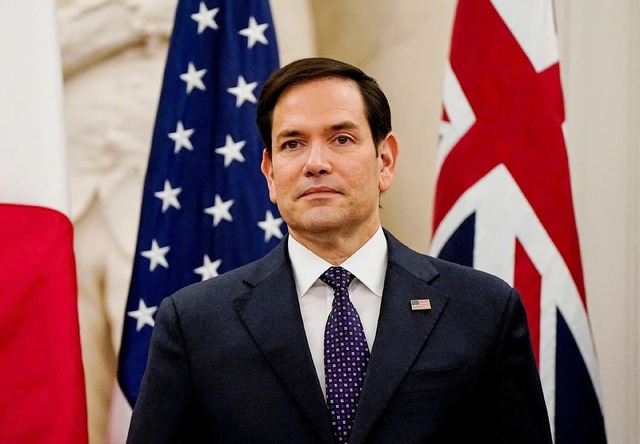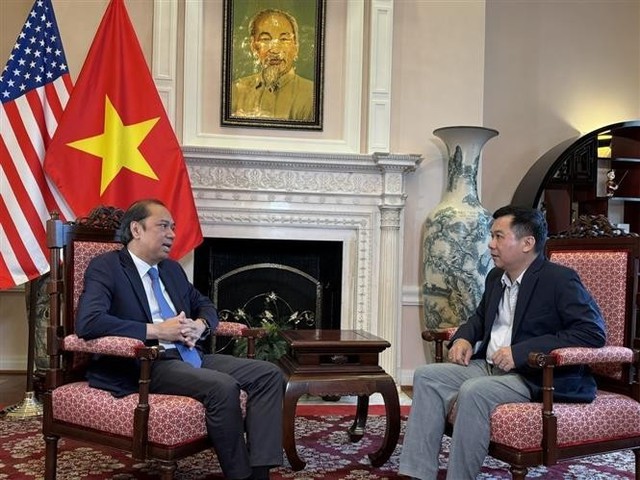Viet Nam, U.S. mark 30 years of remarkable diplomatic journey
VGP - Viet Nam and the U.S. have traversed a remarkable path over the past three decades—from former foes to friends, partners, and ultimately, comprehensive strategic partners as of 2023. This milestone comes 50 years after the end of the war in 1975 and 30 years since the normalization of diplomatic relations in 1995.

U.S. Secretary of State Marco Rubio
To mark the 30th anniversary of diplomatic normalization (1995–2025), U.S. Secretary of State Marco Rubio on July 11 posted on social media platform X, acknowledging the significance of the occasion.
"Thirty years ago, the U.S. and Viet Nam began a remarkable journey from former foes to Comprehensive Strategic Partners. Today, we recognize this important milestone and reaffirm our commitment to advancing peace, prosperity, and security together for a free and open Indo-Pacific," he wrote.
On the evening of July 11, 1995 (U.S. time), President Bill Clinton officially announced the normalization of diplomatic ties with Viet Nam. Hours later, in the early morning of July 12, 1995 (Viet Nam time), Prime Minister Vo Van Kiet made a corresponding announcement in Ha Noi.

Vietnamese Ambassador to the U.S. Nguyen Quoc Dung (L) in an interview to commemorate the anniversary - Photo: VNA
In an interview in Washington, D.C., to commemorate the anniversary, Vietnamese Ambassador to the U.S. Nguyen Quoc Dung described the bilateral journey as rare in international relations. For Viet Nam, he said, the normalization process reflects the country's steadfast foreign policy of independence, self-reliance, multilateralism, and comprehensive international integration aimed at peace and development.
The ambassador highlighted four key factors contributing to the evolution of bilateral relations. Foremost, he noted, was the vision and political resolve of leaders from both nations. Second was the principle of mutual respect, particularly regarding each other's independence, sovereignty, and political systems. Third was the shared commitment to addressing the war's legacy—including dioxin remediation, bomb and mine clearance, support for Agent Orange victims, and efforts to account for missing personnel—endeavors of deep humanitarian value.
The fourth factor, according to the Ambassador, is economic and trade cooperation, which has become a powerful engine driving the partnership. Since 1995, bilateral trade has grown more than 200-fold, positioning Viet Nam as one of the U.S.'s most important trading partners in ASEAN.
Looking ahead, Ambassador Nguyen said the relationship remains resilient and dynamic amid global and regional uncertainties, underscoring its strategic depth, mutual benefits, and adaptability.
He identified several key areas for future cooperation, including trade and investment with an emphasis on high-tech sectors, supply chain integration, smart agriculture, and digital transformation. Viet Nam, he noted, aspires to become a reliable partner of the U.S. in global supply chains.
Science, technology, and innovation—particularly in semiconductors, artificial intelligence, clean energy, and healthcare—are emerging as new pillars of cooperation. Additionally, the two countries are expected to deepen collaboration in education, high-quality workforce development, defense and security, people-to-people exchanges, and continued efforts to resolve war legacies. These priority areas were clearly outlined when the two countries elevated their ties to a Comprehensive Strategic Partnership in September 2023./.

